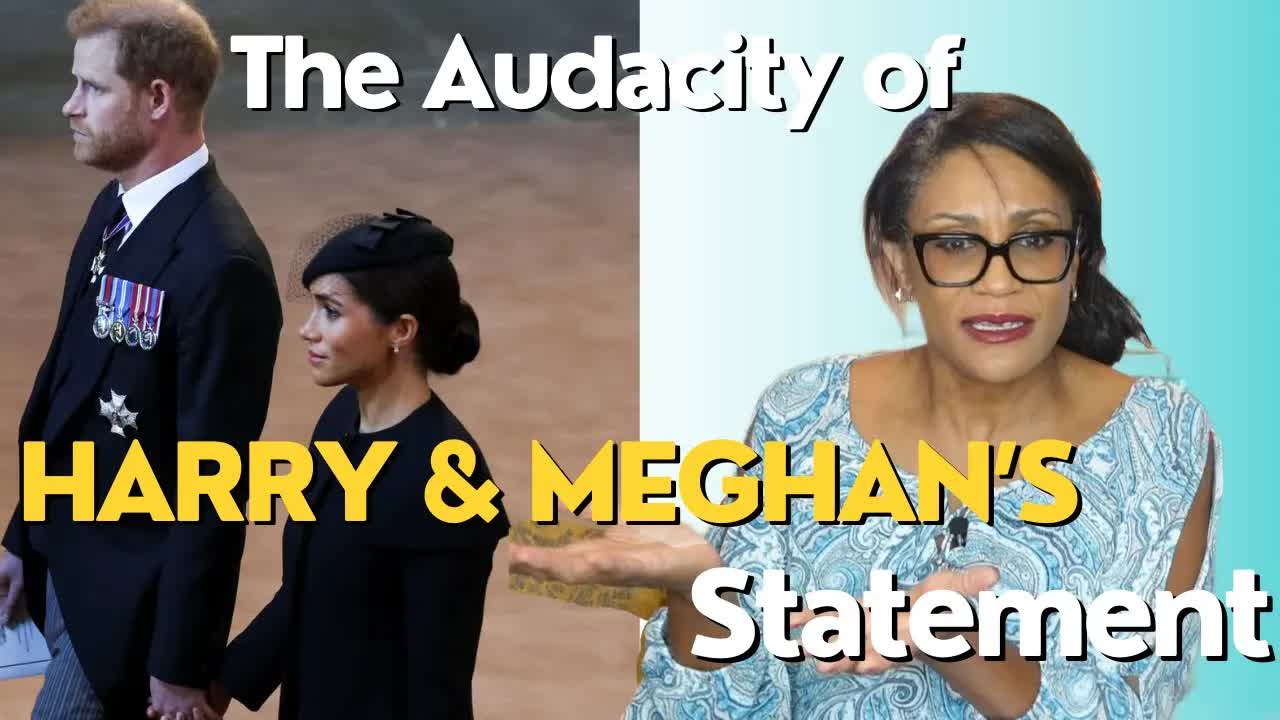In a world where every voice seeks to be heard, Prince Harry and Meghan Markle have once again stepped into the limelight, this time with a statement addressing the ongoing conflict between Israel and Hamas.
Their message, released via the Archwell Foundation’s website, has sparked a wave of criticism, with many questioning the couple’s motives.
Is their desire to contribute genuinely altruistic, or is it merely a self-serving attempt to remain relevant?
The couple’s statement came on the heels of remarks from King Charles III and other senior royals, suggesting that Harry and Meghan are trying to position themselves on the same level as the working royals.
However, their status as ex-royals raises eyebrows.
Why do they believe their words hold weight when they’ve distanced themselves from the very institution they now wish to engage with?
It feels as if they are peering through a window into a world they’ve chosen to leave behind, yet still want to comment on.
Critics argue that their statement appears superficial, almost as if they are leveraging a serious global crisis for personal branding.
By issuing a public condemnation of violence without naming specific actors, the couple risks coming off as disingenuous.
Many wonder why they feel compelled to weigh in at all, especially when they have not been directly involved in the humanitarian efforts they claim to support.
Their foundation’s assertion that they back organizations aiding innocent victims raises further questions.
Who are these partners?
Why not highlight them instead of focusing the spotlight on themselves?
It seems counterintuitive to issue a statement of support while neglecting to mention those on the front lines risking their lives for the cause.
This omission casts doubt on the authenticity of their commitment.
Despite their past involvement in charitable work, including contributions to mental health initiatives for refugees, critics point out that their actions since relocating to America have been minimal.
The couple’s history of philanthropy appears less impactful when scrutinized against their current endeavors, which some perceive as more about self-promotion than genuine aid.
In their recent Vanity Fair article, Harry and Meghan discussed their efforts to help those affected by the conflict, but their approach raises eyebrows.
The term “mental health emergency room” used in reference to their past donations prompts skepticism.
What exactly does that entail?
It seems like an attempt to create a narrative around their charitable contributions rather than a substantive commitment to change.
Moreover, the couple’s timing is suspect.
Their statement was released just days after they made high-profile appearances in New York City for World Mental Health Day, closely mirroring the activities of other royals.
This synchronization feels choreographed, as if they are intentionally trying to echo the efforts of their royal counterparts while carving out their own identity.
As Meghan’s quotes dominate the narrative, one can’t help but notice the absence of Harry’s voice.
It appears that Meghan is the driving force behind their public persona, using her title to garner attention.
This raises the question: is she genuinely passionate about these causes, or is she merely leveraging her royal connections for personal gain?
The couple’s insistence on making statements during times of tragedy has led to accusations of opportunism.
Critics argue that if their voices truly mattered, they wouldn’t need to pay for their opinions to be published.
Authenticity comes from action, and many believe that Harry and Meghan are more focused on maintaining their brand than on making meaningful contributions.
The crux of the matter lies in their perceived disconnect from the real issues at hand.
Their claims of empathy ring hollow to those who see them as detached from the struggles of everyday people.
The notion that their hearts are heavy with concern feels insincere when juxtaposed against their own familial estrangement and the controversies surrounding their departure from royal duties.
Ultimately, the couple’s attempt to insert themselves into a complex geopolitical issue raises more questions than it answers.
Are they genuinely trying to help, or are they simply seeking to stay relevant in a world that often forgets the fleeting nature of celebrity?
The line between advocacy and self-promotion is thin, and Harry and Meghan seem to be walking it precariously.
As the world watches, the couple must navigate the delicate balance between their past royal identities and their present ambitions.
In doing so, they must confront the reality that actions speak louder than words, and true compassion is demonstrated through consistent, meaningful engagement rather than opportunistic statements amidst tragedy.










